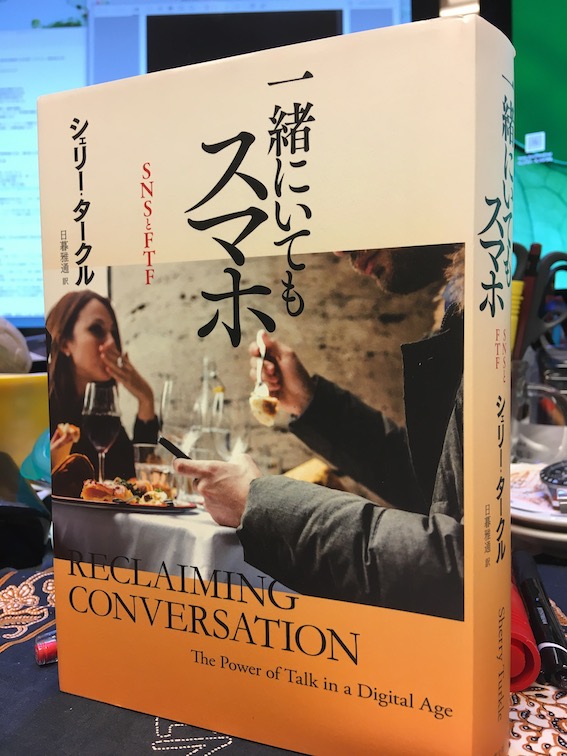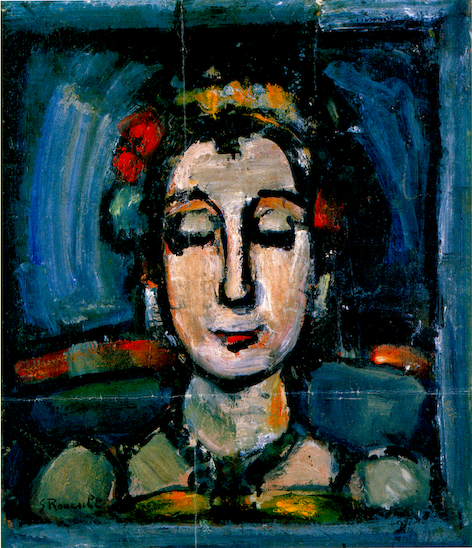シェリー・タークルの著作研究
Narcissism-ization and emaerging new
solitude among the Digital Natives

シェリー・タークルの著作研究
Narcissism-ization and emaerging new
solitude among the Digital Natives

このテーゼは、一連のシェリー・タークル(Sherry Turkle, 1948- )の諸命題を 検討するページである。
1948 6月18日 ニューヨークのブルックリンに生まれる
1960s-1980s Generation X.
1965 アブラハム・リンカーン・ハイスクールを卒業
1965 ラドクリフ・カレッジ入学、その後に、渡仏
1970年代初期 ラドクリフ・カレッジにて社会研究で卒業(学士)
1973 社会学でハーバード大学大学院卒業(修士)
1976 社会学とパーソナル心理学で博士号(ハーバード大学):フロイト思想と1960年代末のフランス思想の関連ついて
1978 Psychoanalytic Politics: Jacques Lacan and Freud's French Revolution (1978)
1970年代末から80年代初頭 ポスドク研究か?MITの研究室で、AI関連の研究をはじめる。研究の関心は、Inner history of device(タークル 2018:2)
1980 頃、デボラ(13歳)との出会い(タークル 2018:3)。
1980s- 2000s Millennials (millennial generation, Generation Y)と呼ぶ
1984 The Second Self: Computers and the Human Spirit. コンピュータにより「新しい自己」の誕生
1984 『インティメイトマシン : コンピュータに心はあるか』西和彦訳(※これの原著が不明、限りなく"The Second Self"であると思われる)
1991 愛娘レベッカ誕生(2010年の時点で19歳)
1995 Life on the Screen: Identity in the Age of the Internet.(『接続された心』)(リアル・ライフよりも「ネット・ライフ」を重視する人の登場)
"In the section titled
"Of Dreams and Beasts", Turkle focuses on how the boundary between
humans and machines has evolved to become extremely vague. She
pays great attention to the development of artificial intelligence and
artificial life, and notes people's constant struggle to make a
distinction between humans and machines. When AI first came
about, there were two different approaches: emergent and rule-driven.
Originally, rule-driven AI was more practical. People at the time never
even considered humans to be anything like machines. Later, computers
became more widely used and technology allowed emergent AI to come
about. People said machines couldn't be like people because humans had
feelings and were spontaneous. Emergent AI was similar to being
spontaneous so the boundary had to be redrawn. As technology improved
machines began to act more and more humanoid. People's opinions of
computers had evolved along with the technology. Turkle observed that
where once people refused to even think of machines as a very basic
human mind, now they referred to their own mind as machine-like at
times. She also noticed that people now began to talk to machines
freely without much embarrassment. The boundary between humans and
machines had been broken down to one point, humans are alive where
machines are not. With the development of a-life, that weak boundary is
becoming weaker. Turkle questions how we define life and simulated
life./ Turkle dedicates a section entitled "On the Internet" to her
observations about how people use the technology. Within this section
she argues that misrepresenting oneself in a MUD may be therapeutic.
Turkle also considers the problem of differentiating between real life
crimes and those which occur in online environments. She questions the
ferocity and dangers of online "rape" because of the differing
reactions she has seen to it. She also discusses the problem of
underage children posing as adults. This misrepresentation could
potentially lead to a relationship with a genuine adult./ In the same
section, Turkle also observes that women have a "non-linear" approach
to computers. This she calls "soft mastery" and "bricolage" (as opposed
to the "hard mastery" of linear, abstract thinking and computer
programming)." - Life on the Screen, by Wiki.
1996 "A Declaration of the Independence of Cyberspace"
1990年代中期 —— 常時接続の世界の登場。mid-1990s to early-2000s as starting birth years の世代をGeneration Zと呼ぶ。
2000 スマート・フォンの世界的普及により、この時代以降に生まれた世界の子供たちは、実質的に「デジタル・ネイティブ」とみなしてよい。
2007 Evocative Objects: Things We Think With, (Ed.), MIT Press
2008 Falling for Science: Objects in Mind, (Ed.), MIT Press
2008 he Inner History of Devices, (Ed.), MIT Press
2009 Simulation and Its Discontents, MIT Press
2010 ニールセンの調査では、平均的なティーンエージャーは1ヶ月に三千件のテキストを送る。
2011 Alone Together, Basic Books(これが主著と言われる)『つながっているのに孤独』
石黒浩の娘と自分の生き人形ロボットとの邂逅のエピソード(邦訳:p.196)
彼女はユダヤ出自なので、ユダヤ信仰にまつわるエピソードなどの記載がある(邦訳:p.524;視覚障害版, pp.552-)
2015 Reclaiming Conversation: The Power of Talk in a Digital Age, Penguin Press(会話の復権→「一緒にいてもスマホ : SNSとFTF」)
● 『セカンド・セルフ』Turkle, Sherry. The Second Self: Computers and the Human Spirit (1984)
●● 『スクリーンの上での生命』Turkle, Sherry. Life on the Screen: Identity in the Age of the Internet (1995)
●●● 『繋がっているのに孤独』Turkle, Sherry. Alone Together, Basic Books (2011)
●●●● 『会話の復権(Reclaiming Conversation)』Turkle, Sherry. Reclaiming Conversation: The Power of Talk in a Digital Age, Penguin Press (2015)
| FTF - Face to Face |
SNS - Social
Networking Service |
Dialogue |
Reflection (Self-reflection) |
Family |
Empathy |
| Friendship |
Solitude |
Loneliness |
Education |
Love |
Work (Wage labour) |
| Public space |
MOOC, Massive Open Online Course |
||||
●Margaret E. Morrisの研究("Left to our own devices : outsmarting smart technology to reclaim our relationships, health, and focus") digital health. (→デジタル・ヘルス)
"Unexpected ways that
individuals adapt technology to reclaim what matters to them, from
working through conflict with smart lights to celebrating gender
transition with selfies. We have been warned about the psychological
perils of technology: distraction, difficulty empathizing, and loss of
the ability (or desire) to carry on a conversation. But our devices and
data are woven into our lives. We can't simply reject them. Instead,
Margaret Morris argues, we need to adapt technology creatively to our
needs and values. In Left to Our Own Devices, Morris offers examples of
individuals applying technologies in unexpected ways-uses that go
beyond those intended by developers and designers. Morris examines
these kinds of personalized life hacks, chronicling the ways that
people have adapted technology to strengthen social connection, enhance
well-being, and affirm identity. Morris, a clinical psychologist and
app creator, shows how people really use technology, drawing on
interviews she has conducted as well as computer science and psychology
research. She describes how a couple used smart lights to work through
conflict; how a woman persuaded herself to eat healthier foods when her
photographs of salads garnered "likes" on social media; how a trans
woman celebrated her transition with selfies; and how, through
augmented reality, a woman changed the way she saw her cancer and
herself. These and the many other "off-label" adaptations described by
Morris cast technology not just as a temptation that we struggle to
resist but as a potential ally as we try to take care of ourselves and
others. The stories Morris tells invite us to be more intentional and
creative when left to our own devices." - (Morris is a skillful
storyteller. This book is a good read for today's digital health initiatives
and for clinicians hoping to keep up to date in current trends in
mental health technology - Psychiatric Times)「Nielsen BookData」 より
リンク(シェリー・タークル関係)
リンク
文献(参照文献)
文献(タークル先生関連)
その他の情報



